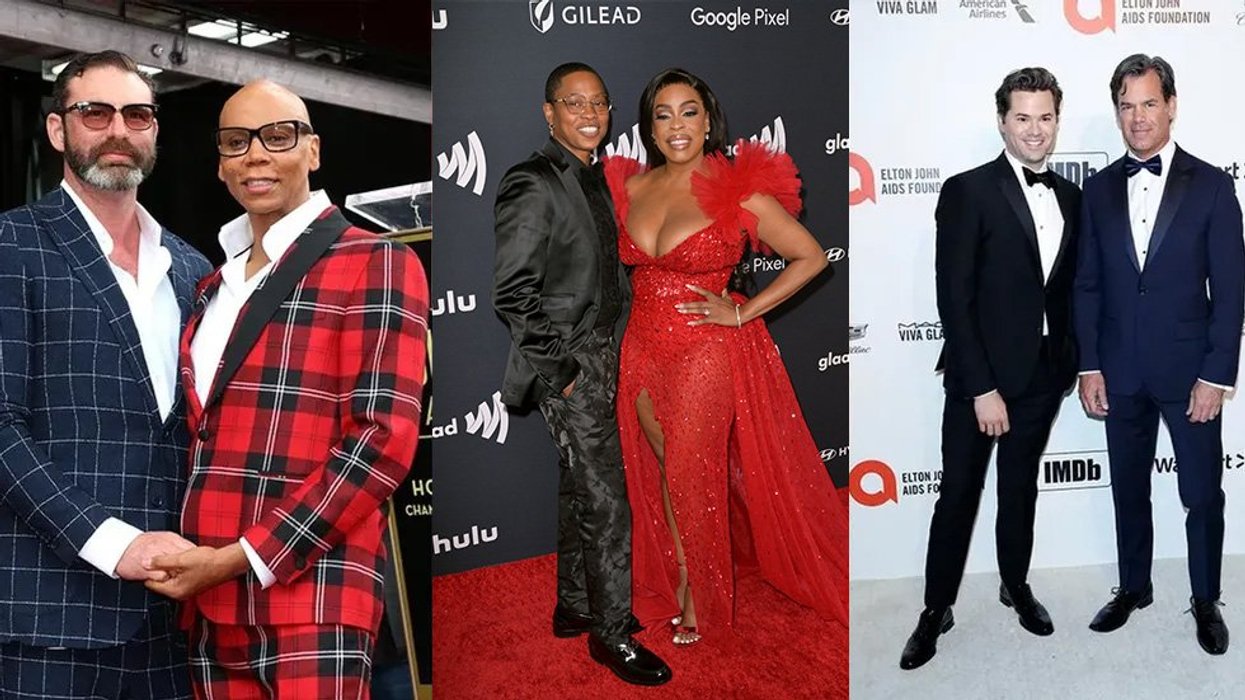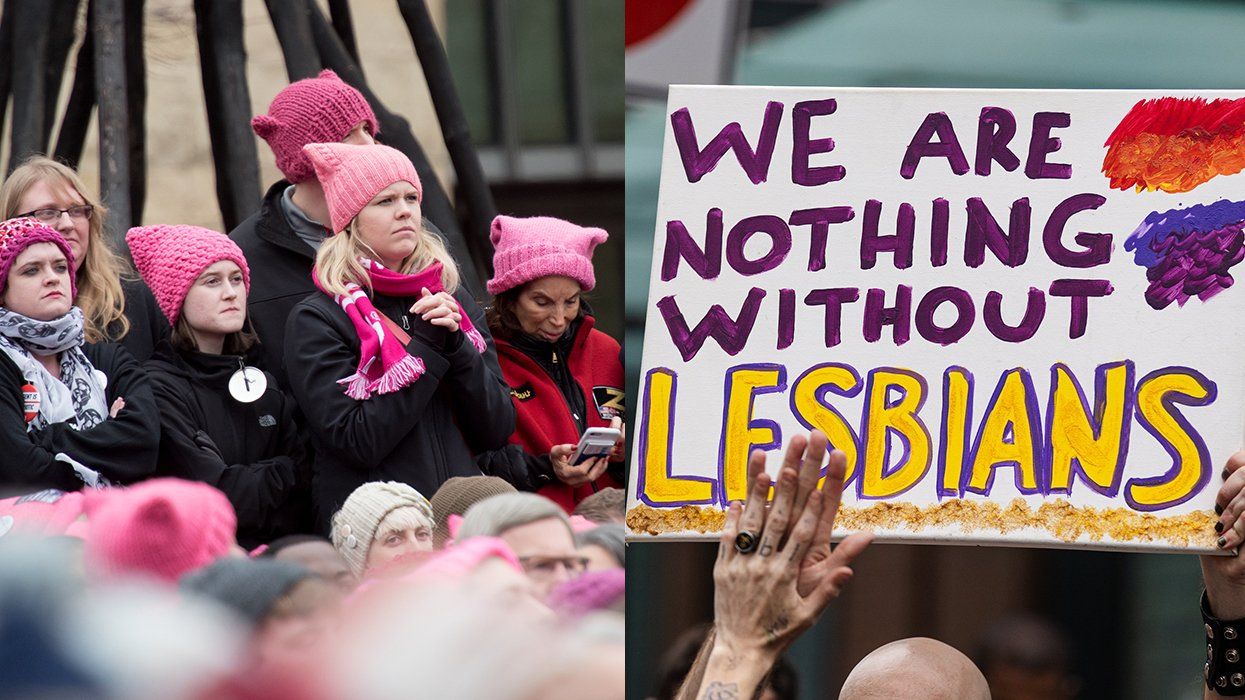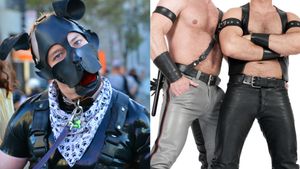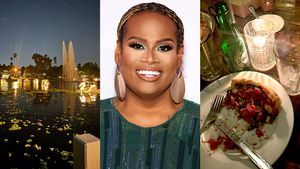It all started with a blog post, as so many things do these days.
Back in April 2011, Keith Ablow — a mystery novelist and forensic psychiatrist whose hate-spewing distortions are regularly presented by Fox News Channel and its website as the perspective of a legitimate mental health professional — was blogging about that day’s choice of topic: J. Crew’s Jenna Lyons, who, as creative director of the retail clothing company, had recently done a playful photo shoot with herself and her son, Beckett, who had his toenails painted hot pink. Mon dieu!
“This is a dramatic example of the way that our culture is being encouraged to abandon all trappings of gender identity,” wrote Ablow.
According to the doctor, Lyons’s actions were nothing less than an attack on truth, in this case the truth of one’s gender, which he sees as incontrovertible, singular, and divined at birth.
“These folks,” Ablow went on, referring to the whole crew at J., “are hostile to the gender distinctions that actually are part of the magnificent synergy that creates and sustains the human race. They respect their own creative notions a whole lot more than any creative Force [his capital F] in the universe.”
Absurd though it was, Ablow’s rant was cited again and again on Fox News, and its frequent repetition prompted reactions all over the media. Once again, Fox had ginned up a controversy over nothing, though that nothing could have big implications for someone’s career. But Lyons and J. Crew never took the bait; the company declined to comment for every story about the incident, including this one.
The nail polish nontroversy, referred to in some media circles as “Toemageddon,” marked the first time many people ever heard of Jenna Lyons. Alas, it has not been the last. Six months later, in October of last year, word got out that Lyons had been going through a divorce from her husband and was in a relationship with a woman.
Ablow’s response: “What it says is that my worry that Ms. Lyons might be expressing her own discomfort with masculinity and projecting it onto her son — and mine, and yours — seems to have been justified.”
As if that weren’t fearmongering enough: “It says that she was, indeed, apparently using J. Crew — a brand so many or our kids gravitate toward — as her launching pad for a mini-campaign to change the way our kids think about their bodies and their gender identities.”
But enough about Ablow. What impact has all his bloviating had on J. Crew?
Evidently, not much.
“There are so many gay people, not just in creative positions, at these companies,” says a former J. Crew executive who now works at a competing retailer. “Within the executive teams there are gay people and everyone’s accepting. It’s not even a discussion. It’s a nonissue.”
“It hasn’t been that big,” Eric Beder, a retail analyst with investment bank Brean Murray, Carret & Co. in New York, says of the story. “Jenna has been the style leader, the face, really, for the brand, and I don’t see that changing.”
What change he does see is the company expanding. Plans are afoot to finally open J. Crew stores in Europe and Asia. “They’re taking the brand to the next level,” says Beder.
He also says that the core customer, a “25- to 40-year-old who makes six figures and is looking for the newest style,” has been consistent for the company, despite the recent economic slowdown.
As of early 2011, J. Crew was acquired by private equity investment firms TPG Capital and Leonard Green & Partners. The acquisition turned the public company private, rendering moot many of the ups and downs that public companies, beholden to Wall Street, need to worry about.
more on next page...
\\\
(continued)
This is a brand that has weathered much, much worse. J. Crew went through a rough patch in the 1990s when its preppy ethos was eclipsed by grunge. Then Abercrombie & Fitch grew into a youth behemoth. But in the last few years J. Crew has gotten its groove back. The company has been branching out in various directions. Since 2006 it has opened more than 30 Madewell stores, an Anthropologie-like, preppy-modern spin-off that caters to younger women.
In 2008 it opened the Liquor Store, its first men’s-only shop, in Manhattan’s Tribeca neighborhood. It’s a boutique-style setup that the company has since replicated elsewhere. It’s also a showcase for J. Crew’s ever-growing lines done via collaboration with other style leaders, including Timex, Thomas Mason, and Red Wing.
This year the men’s tailored Ludlow suit has become a signature item for the company, which has been showcasing it at the exclusive Ludlow Shop in Tribeca. The company has been leading the trend toward more affordable suits for men that can be bought as separates, a movement chronicled in The New York Times’ Fashion & Style section. The company also made a splash at the New York Fashion Week in February by announcing its high-profile partnership with Manolo Blahnik for lower-priced women’s shoes. That deal has since fizzled.
Meanwhile, Ablow no doubt awaits the next nugget of news about Lyons’s life that he can distort and exploit. Among his other recent tirades, Ablow savagely advised parents against allowing their children to watch Dancing With the Stars when Chaz Bono was set to appear.
That was enough to prompt a declaration against Ablow by John Grohol, editor of website Psych Central, who used the site to declare, “Don’t Let Your Kids Watch Dr. Keith Ablow.”
In contrast, no less a fashion icon than Michelle Obama has given a rather high-profile stamp of approval to J. Crew. She first talked about J. Crew in an appearance on The Tonight Show in 2008, advising, “You can get some good stuff online.” The first lady then wore a J. Crew cardigan while visiting the British prime minister at 10 Downing St. the following year, sparking an instant sellout.
If JCPenney, of all stodgy-seeming retailers, can stand by Ellen DeGeneres amid antigay protests, then J. Crew should be able to weather this.
Retail analyst Beder goes one step further, suggesting that J. Crew’s core customer is rather solidly blue-state and therefore not likely to be swayed by any bogus culture wars stoked around the brand.
“If you look at the customer who buys J. Crew,” says Beder, “they probably support same-sex marriage and equal rights for everyone. So, if anything, I’d see those stories as a positive for J. Crew.”
Follow SheWired on Facebook.
Follow SheWired on Twitter.



























































































































